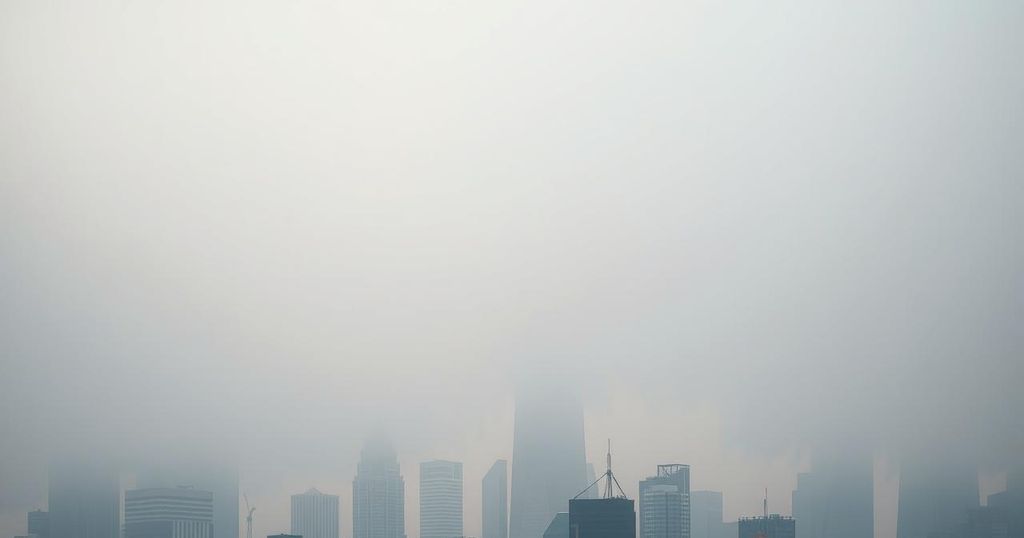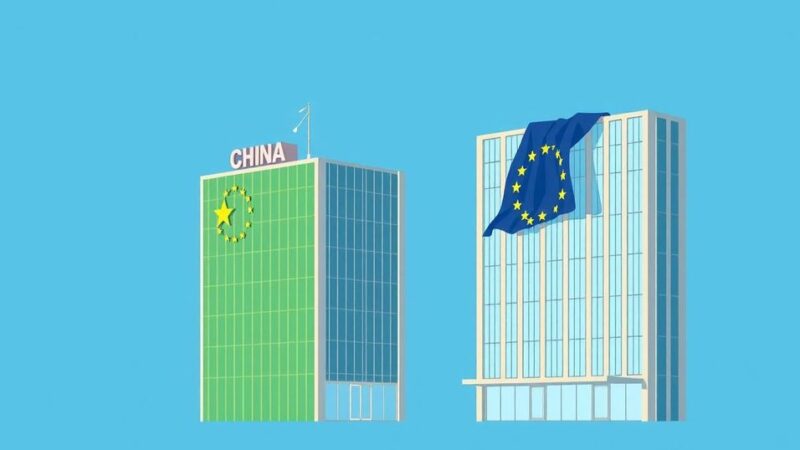In 2024, Pakistan ranked as the third most polluted country, with an average PM2.5 level of 73.7 µg/m³, significantly above safe limits. Major cities like Lahore and Peshawar were severely affected by smog, prompting health crises. Over 70% of the population reported health issues due to air quality problems, leading experts to call for immediate policy reforms.
As of 2024, Pakistan has been designated as the third most polluted nation globally, primarily due to a severe smog crisis impacting public health. The 2024 World Air Quality Report from IQAir highlights Pakistan’s alarming position in global pollution rankings, exceeding safe air quality limits significantly.
In the report, Pakistan’s average PM2.5 concentration was recorded at 73.7 micrograms per cubic meter (μg/m³), which is nearly 15 times higher than the World Health Organization’s recommended limits. This situation has prompted urgent calls for effective policy measures to improve air quality and safeguard citizens’ health.
The smog crisis intensified in 2023, particularly in Punjab, where authorities declared it a “calamity.” Nearly two million individuals required medical assistance due to smog-related health issues, leading the government to impose lockdowns in severely affected areas. Despite these measures, pollution levels remained stagnant compared to the previous year.
Cities including Lahore, Multan, Peshawar, and Sialkot were among the worst affected, ranking as some of the most polluted in Central and South Asia. Key contributing factors to this pollution include biomass burning, industrial emissions, vehicular discharges, and construction dust.
While pollution increased in cities like Peshawar, Islamabad, and Lahore, Karachi showed some improvement, with PM2.5 levels decreasing from over 55 μg/m³ in 2023 to about 46 μg/m³ in 2024. However, five cities reported PM2.5 levels exceeding 200 μg/m³ in November 2023, indicating a critical air quality emergency.
A survey by Ipsos found that approximately 70% of Pakistan’s population faces health issues related to smog, underscoring the urgent need for comprehensive policy responses to address this escalating environmental crisis. Authorities must take swift and effective action to improve air quality and protect public health from ongoing hazards.
Pakistan’s air pollution crisis is alarming, with the country ranked third in the world for pollution levels. Significant health implications are evident, as a large portion of the population suffers due to worsening smog. Key cities are experiencing critical air quality issues linked to multiple sources of pollution. Urgent policy actions are necessary to tackle this growing threat to public health and environmental stability.
Original Source: www.republicworld.com






